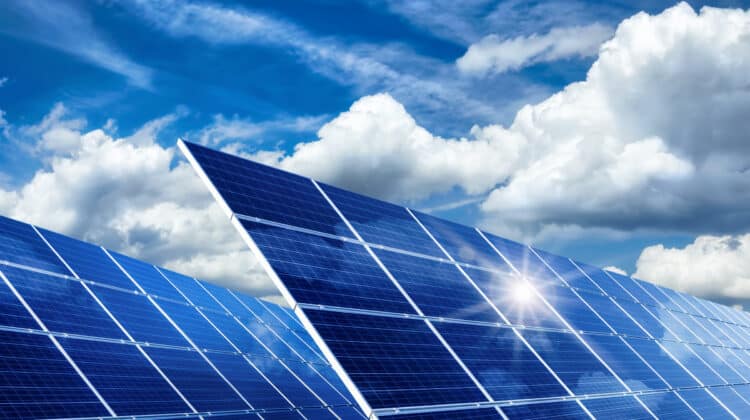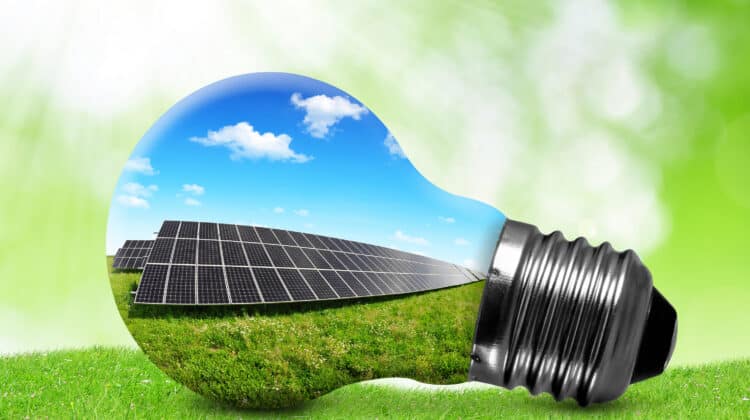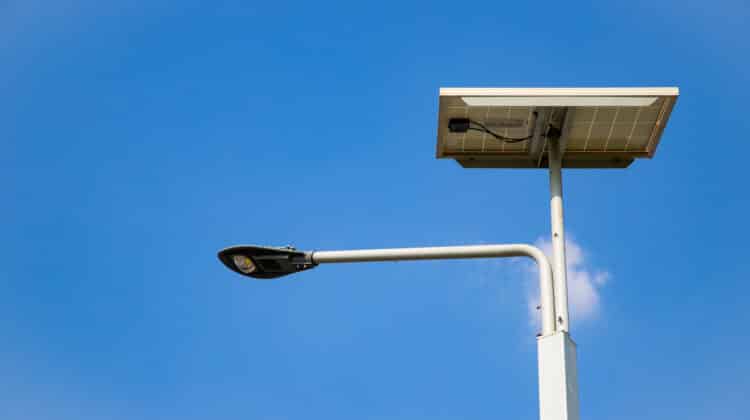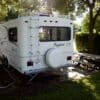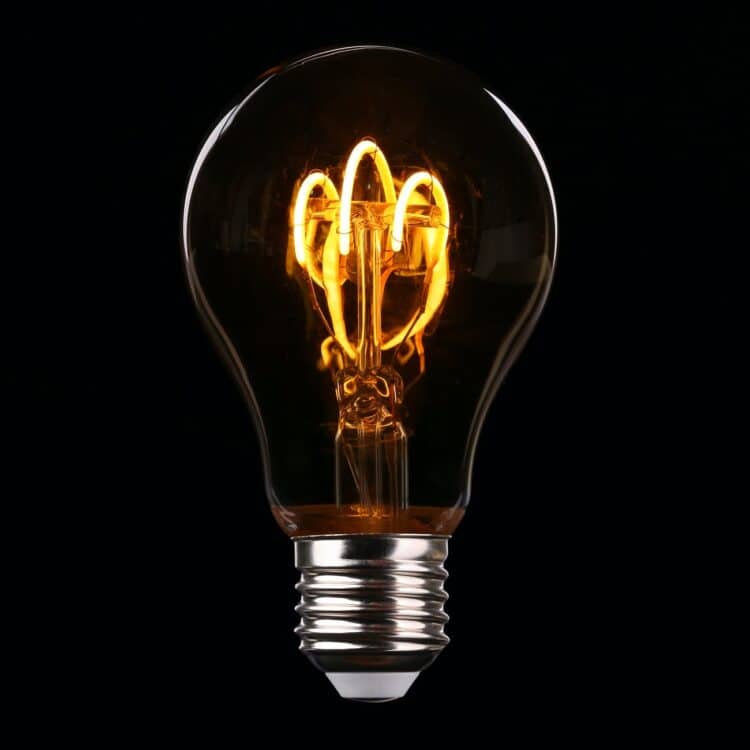
One of the chief reasons so many people decide to go solar is the promise of saving money. And there is merit to it. Over the course of their lifetime, your solar panel will save you a chunk of change. But do you still have an electric bill with solar panels?
The answer to this question can be yes or no. Whether you get an electricity bill at the end of the month depends on the type of system you have.
Here are the reasons why.
Getting a solar panel system takes planning. It’s not a matter of deciding today and getting one tomorrow. In fact, it can take between 3 and 6 months before you get your solar panel system up and running.
One of the first things you have to think of is whether you want to remain tied to the grid or not. Because you have the option of designing an independent system.
Table of Contents
About Grid-tied Solar Panel System
With this system, your electricity remains connected to the national grid. Once you mount your system, a representative from the electricity company will inspect it.
If your system meets with approval, you will receive a bi-directional meter. That meter allows you and the company to keep track of how much electricity your panels generate.
The bi-directional meter manages the energy data. It also ensures that the electricity company bills and credits you with accuracy.
So, if your solar panel system remains tied to the grid, you will receive an electricity bill. But do not fret or be discouraged. There is more to it than that.
How Much Will My Bill Cost?
The answer to that question also depends on a few things. I mentioned earlier that designing a solar panel system takes planning. Before you go out to buy solar cells, you should know the size system you need. The size or capacity of the system will determine how much of your electricity use it offsets. But you can expect your bill to be lower.
How Much Is The Average Electricity Bill?
The average American home consumes under 10,800 kilowatt-hours of electricity each year. Those figures come courtesy of the Energy Information Administration.
The monthly kilowatt-hour usage of these homes averages at 900. The cost of each kilowatt-hour is $12.57. So, the national average of electricity per household is about $113 monthly.
Remember, these numbers are averages. They may not reflect your situation. And you can expect the numbers to climb during the winter months.
Will I Benefit From Having Solar Panels?
There are two benefits you can expect to enjoy when you invest in your solar panel system. Those two things are money and the environment.
Using Solar Energy Gives Big Financial Savings
Joining the part of the population going solar may have nothing to do with the environment. It could be all about the money for you. There is nothing wrong with that.
The environment will benefit from your choice anyway, and you will save a good chunk of change.
Solar panels have a life expectancy of about 30 years. During that time, your solar panels will save anywhere from $10,000 to $30,000.
The rate of electricity costs in your area will help determine if you fall in the lower end of these figures. It also determines if you’re on the higher end.
Using Solar Energy Help The Environment
Saving money is a good reason for choosing solar. But it’s not the only one. A lot of people choose solar because it is better for a healthier environment.
Every person who chooses solar reduces their carbon footprint.
Get Complete Coverage Of Electricity Cost
Decide if you want a system that powers your entire house, including all appliances. To do that, you need to know how much electricity your household uses each day. That will let you know how many panels will produce the kilowatt-hours you need to bring your electricity cost to zero.
You may need between 20 and 35 panels, depending on the wattage of the ones you choose.
To design such a system, you need to ensure your roof or yard has the mounting space to support that many.
Get Partial Electricity Cost Coverage
You could also design a grid-tied system that offsets only part of your electricity use. In that case, your solar panel setup will run certain appliances. With these designs, the real power consumers like your refrigerator will rely on the grid. Other less power-hungry appliances like the television can run on solar.
The cost of your electricity won’t be zero in this situation. But, you will see a reduction.
Even if your panels cover the cost of your electricity or part of it, as long as you remain tied to the grid, you will get a bill.
What To Expect From Your Electric Bill With Solar Panels
Your electricity company will give you the option to make yearly payments.
The annual billing cycle begins when you turn your system on. It does not start once you install your panels. The cycle concludes one year later.
Your bill will show a breakdown of how much energy the electricity company credited you. There will also be a detailed account of how much energy you used.
But during that year, you will also receive monthly reports on panels performance. You will see a breakdown of the energy you used and fed into the grid.
If you use gas, your solar panels will not be enough to cover the gas portion of your utility bill. You will have to cover the cost of it.
If during that year you use no power from the grid, your electricity consumption will be zero. There will be no charges for that. That means the cost of your electricity use will also be zero dollars and zero cents.
If you use some power from the grid, you will see those charges reflected on your bill. Keep in mind that the consumption charges will be lower than your regular bill when you did not have solar.
But, there are other charges as well.
Pay A Service Charge
Most utility companies have a service charge that every customer must pay. Electricity providers are no different. Even if you have a solar panel system that ties to the grid, that does not change. The service charge will be a fixed figure that appears on your bill every month.
This fee has nothing to do with your electricity bill. Usually, it is a small amount. You can check a past electricity bill to see how much your electricity company charges.
Pay Sales Tax And Tariff Surcharge
These are small amounts that you can also expect to see fixed on every bill you receive. Usually, these charges are under a dollar.
Pay A Solar Charge
In some states, you may have to pay a fee to your electricity company just for having solar power. The great state of Alabama is one such place where you can expect those charges.
Every month, customers with solar energy pay a $5 cumulative fee. That fee applies to each kilowatt of solar PV system you have linked to the Alabama Power grid. It makes no difference the amount of electricity you feed back into the grid. It also doesn’t matter how much of the grid electricity you consume. You must pay that $5 kilowatt.
So, with a 6-kilowatt system, you can expect to pay Alabama power an additional $30 solar charge.
Utility companies say this fee allows solar power users to pay their share for grid repair. It could also be a scheme to discourage others from trying solar.
More and more people going solar must not be good for business. Still, $30 is a small amount to pay compared to the whopping monthly electricity bills.
The Benefits Of Net Metering With Solar Panels
When you remain on the grid, you may choose to enter a contract with your electricity company. Solar power system owners get credit for the electricity they add to the grid. They get this benefit through net metering.
Allow me to explain.
Your solar panels produce a certain amount of energy each day. If that amount is more than your house uses in a day, the excess feeds back into the grid. The company then credits you for it.
Here is an example.
Let’s say your house uses 877 kilowatt-hours of electricity during the billing period. But your solar panel system generates 944 kilowatt-hours during that time.
You have an excess of 67 kilowatt-hours of electricity produced. Because it is extra energy, your house has not used and doesn’t need it.
If you do not have a storage system for that excess power, it goes back into the gird.
Those 67 kilowatt-hours will appear as a cumulative credit on your bill and will look this. -67 kilowatt-hours. The next time you get your bill, the 67 kilowatt-hours will cover some of the electricity you use from the grid.
So, as long as you have a grid-tied solar panel system, you will have an electricity bill. Your solar panel may cover all your electricity use. But, there are still service fees and taxes that you must pay.
I Have Solar Panels. Why Is My Electric Bill So High?
Sometimes, when homeowners receive their bills, the amount surprises them. The cost may seem too high. Or it may seem like they used a lot more electricity than they expected.
At that point, homeowners often wonder if the electricity company cheated them. Or if they wasted their money on the system. Some worry about whether the system is faulty.
There are three reasons why your electricity bill could be high even if you have solar panels.
The System Is Faulty
Although this does not happen often, it does happen. Sometimes, Solar panel systems do not work the way they should. Most times, this is an installation problem.
Even if your system is grid-tied, the electricity company is not responsible for this problem. It is not their job to find or fix it. Your installer is the one you should call to take a look at it.
It is a good idea to get a warranty from the installation company putting up your solar panels. That way, if anything goes wrong within the time frame, they will be responsible for the cost.
Your Home Is An Energy Guzzler
When you decide to get a solar panel system, it has to be worth your while. Otherwise, they are a waste of time and money.
The system has to offset the amount of energy your home uses in some way. It has to make you spend less money.
Large appliances use up a lot of power. If you want to cut down on that cost, you have to install a system with the capacity to support that goal. If you do not, these appliances will eat through your energy savings.
Here’s a tip you can use. If you cannot afford a large solar panel system yet to offset all your energy costs, you can start small.
Build a system one panel at a time if you have to and add to it as time goes by. You will eventually get to the capacity you desire. A smaller solar panel setup can run your smaller appliances.
You Are Not Reading The Meter The Right Way
Some people do not know how to read their meter. They take a look at it, and their energy consumption seems high. They expect to see that reflected in their bill.
If you worry that your meter records more energy than you use, call your installer to lay your fears to rest. If there is a problem, they can troubleshoot the system and teach you how to read and fix it yourself.
Staying On The Grid
Advantages Of Staying On The Grid
- Grid-tied solar systems do not use batteries and other equipment off-grid systems need. Because of that, off-grid is the more cost effective option.
- This system is ideal for those who don’t have the space or funds to build a solar system that covers energy cost. If necessary, you can continue to draw electricity from the grid.
- During the night, the electricity from your solar system offsets the power you use from the grid. The same happens on very cloudy days. This is possible through net metering.
The grid becomes a cost-effective and dependable storage option for you. - Solar Renewable Energy Credits (SRECs) allow grid-tied system owners to earn extra money. The do that by selling the SRECs their system generates. But this does not happen in every state. Only a few have offer this perk.
Disadvantages Of Staying On The Grid
- Your system will shut down if the grid goes down, leaving you without electricity. The shut down is necessary to keep utility workers safe during mainenance. The shut down prevents energy from flowing back into the grid. When the grid goes down, your grid-tied system will switches off. It will kick start again when the power returns.
- You aren’t fully self-contained from the grid.
Living Off The Grid
Some people choose to live independently from the grid. In this case, the electricity company will not be involved in any capacity.
There will be no bi-directional meter to monitor your electricity output. If you want to keep track of how much electricity your system generates, you have to do it yourself. There are remote monitoring systems that you can set up.
There will be no net-metering either. If your system produces any extra energy, you have to come up with a means of storing it yourself.
You won’t have the option of feeding it back into the grid. And the electricity company will not credit you for it.
With an off-grid system, you will not receive a bill. You will have no service fees to pay, solar charges, or any of the other taxes and tariffs.
There Are Ways To Store Excess Energy
Solar panels do not produce energy at night. So, if you decide to live off-grid you need to design a system that makes the most of the daylight.
Your system has to create enough energy so that you can power your home when the sun goes down.
People with this sort of system have to store energy to ensure they do not run out.
Solar panels provide electricity that charges a battery bank. Your system must give the amount of power your house uses to supply your electricity needs. It must also replace the energy your electrical appliances pulls from the battery.
Advantages Of Living Off-grid
- No Power Outage
You do not have to deal with power outages. Power outages can happen without warning sometimes. No matter the length of time, they are inconvenient.
With an off-grid system, you can avoid the inconvenience of a grid power outage. - No Electricity Bill
You will also have no electricity bill. Electricity companies rely on the following.- petroleum
- oil
- coal
- natural gas
But the prices of these energy sources change and rise all the time. With them so does the cost of electricity. But living independently from the grid, these changes will not affect you.
- Easier installation
When installing a grid-tied solar panel system, there is a process you must follow. With an off-grid system, you can avoid some of this red tape. One of the steps you can avoid is the inspection from the utility company.
And if you have the know-how, you can set up your solar panel system yourself. - Ideal for remote areas
Areas far from towns and cities experience a lot of blackouts. For residents in these areas, reliable electricity is a pressing issue.
Connecting to the national grid is often difficult. It can also be expensive. With an independent solar panel system, persons in these areas can avoid these issues.
Off-grid systems can save money for people who reside in places that are off the national grid. There are no extra costs to connect their systems. It allows individuals to live where they want. It also gives them the ability to control the power they produce. - You do your part to help the environment
Renewable energy systems produce lower levels of carbon footprint than fossil fuel technology. Off-grid solar panel systems are one such example.
These systems help to keep the air around us clean. The natural environment needs our help to stay healthy. That is why we need to invest in solar.
When you use off-grid technology to power your homes and businesses, it helps you save money. But it also reduces the negative influence of fossil fuels on the environment.
Disadvantages Of Living Off-grid
It’s true. Living off the national grid is the one way to avoid an electricity bill. The electricity company is not involved in your power consumption or production.
But while you will avoid every part of the costly electricity bill, living off-grid has risks.
They cost more to set up and maintain than grid-tied systems.
You need an elaborate system with several panels to live off the grid.
You will need batteries for a consistent delivery of electricity all through the day. That includes at night.
- The batteries are also very costly.
- You may have to make some lifestyle changes to cut down your energy consumption.
That is to ensure that you do not run out of energy at any time in the day. On some days, your solar panels may not produce the amount of power you need. Remember, you do not have the grid to fall back on. - The extra energy your system produces could go to waste.
- Your panels cannot produce energy at night. They will generate less on cloudy days.
That means you have to use the power in the batteries. On those days of no or little power, you can run out. - Batteries need to be maintained.
Solar batteries are expensive. They also need regular, costly maintenance. They have a short life expectancy, and they also degrade at a fast rate.
Only One Way To Escape Electric Bill With Solar Panels
There are advantages to having grid-tied and off-grid solar panel systems. But only one of these options will see you without an electricity bill at the end of the year.
Having solar panels will cut your electricity bill quite some and save you money. But it does not automatically cancel your electricity bill. There is only one way to do that. And that is by installing a system that does not rely on the grid.
